Table of Contents
- Introduction
- 1. Oregano – The Essential Mediterranean All-Purpose Spice
- 2. Sumac – The Bright, Tangy Flavor Booster
- 3. Cumin – The Earthy Foundation for Mediterranean Dishes
- 4. Paprika – Sweet, Smoky, and Versatile
- 5. Coriander – The Citrusy Spice You Need Daily
- 6. Bay Leaves – The Subtle Flavor Enhancer
- 7. Saffron – The Premium Flavor Elevator
- Quick Start Guide for Beginners
- Proven Cooking Tips for Perfect Results
- Perfect Spice Pairings for Authentic Taste
- Simple Storage Methods to Keep Spices Fresh
- Conclusion
- Frequently Asked Questions
Introduction
The 7 essential Mediterranean spices every home cook needs are oregano, sumac, cumin, paprika, coriander, bay leaves, and saffron. These spices transform simple ingredients into restaurant-quality Mediterranean dishes with minimal effort. Unlike generic spice guides, this article gives you exact measurements, timing instructions, and practical storage tips that guarantee consistent results in your kitchen.
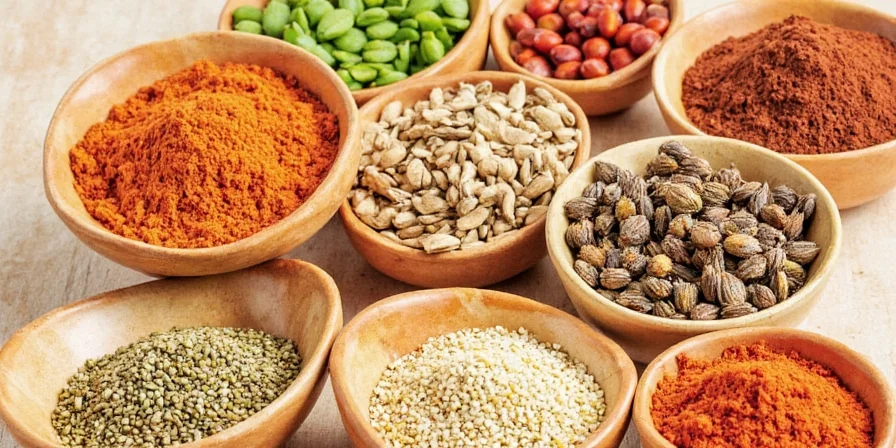
If you've ever wondered why your Greek salad or hummus doesn't taste like restaurant versions, the answer is usually in the spices. This guide solves the top problems home cooks face: inconsistent flavor, spices losing potency, and not knowing which spices work together. You'll learn exactly how much to use, when to add them, and how to store them properly—no culinary degree required.
1. Oregano – The Essential Mediterranean All-Purpose Spice
Oregano is the most used spice in Greek and Italian cooking. For home cooks, dried oregano works better than fresh in cooked dishes because it has stronger flavor.
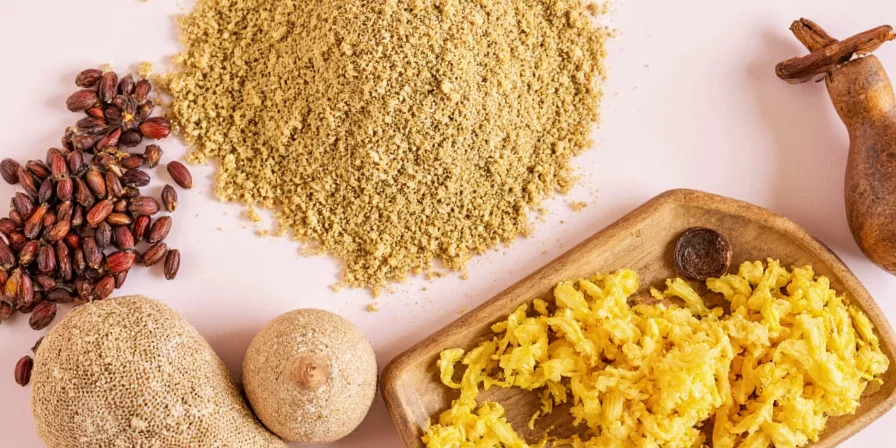
- Beginner Tip: Use 1 teaspoon dried oregano per pound of meat in marinades
- When to Add: During the last 10 minutes of cooking for best flavor
- Pro Tip: Crush dried oregano between your fingers before using to release more flavor
2. Sumac – The Bright, Tangy Flavor Booster
Sumac adds a lemon-like tang without the acidity that can ruin delicate dishes. It's essential for authentic Mediterranean salads and grilled meats.
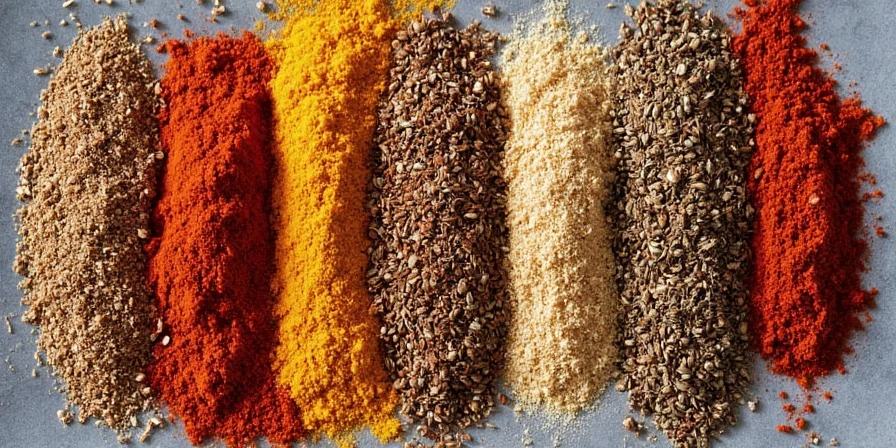
- Beginner Tip: Sprinkle 1/2 teaspoon sumac on salads instead of lemon juice
- When to Add: Always at the end as a finishing spice—never cook it
- Pro Tip: Mix with olive oil for a quick dressing that won't wilt greens
3. Cumin – The Earthy Foundation for Mediterranean Dishes
Cumin gives Mediterranean dishes their characteristic earthy depth. Toasting brings out its best flavor.
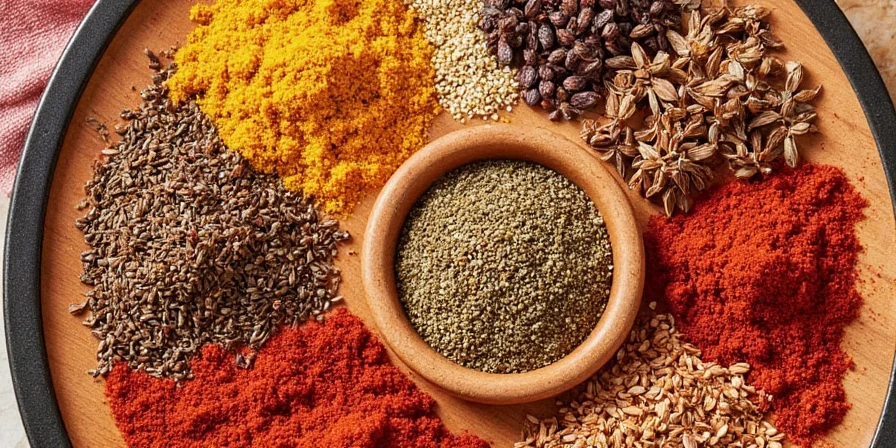
- Beginner Tip: Use 1/2 teaspoon ground cumin per serving in bean dishes
- When to Add: Early in cooking for stews, later for lighter dishes
- Pro Tip: Toast whole seeds 90 seconds before grinding for double the flavor
4. Paprika – Sweet, Smoky, and Versatile
Paprika adds rich color and mild flavor to Mediterranean dishes. Sweet Hungarian paprika is the most versatile type for home cooks.

- Beginner Tip: Add 1/4 teaspoon paprika per cup of tomato sauce
- When to Add: During final simmering—high heat destroys flavor
- Pro Tip: Mix with warm broth before adding to prevent clumping
5. Coriander – The Citrusy Spice You Need Daily
Coriander seeds have a light citrus flavor that enhances Mediterranean dishes without overpowering them.
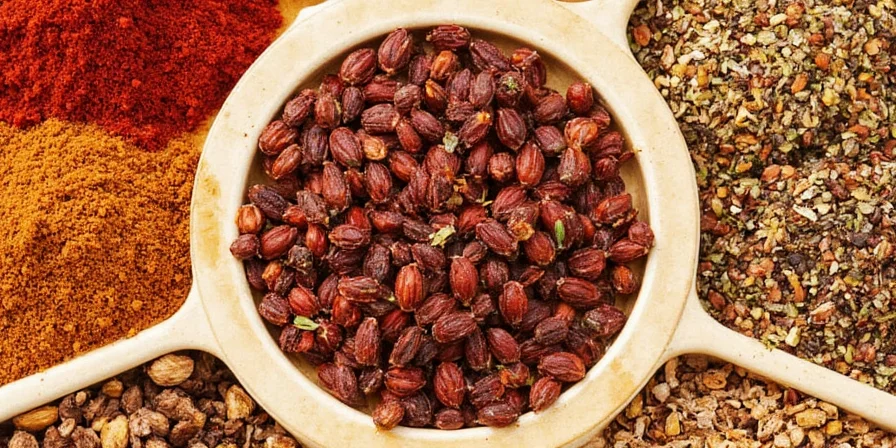
- Beginner Tip: Use 1/2 teaspoon ground coriander in fish or vegetable dishes
- When to Add: Early in cooking to allow flavors to blend
- Pro Tip: Keep whole seeds and grind only what you need for maximum freshness
6. Bay Leaves – The Subtle Flavor Enhancer
Bay leaves add a subtle background flavor that enhances other ingredients without standing out.
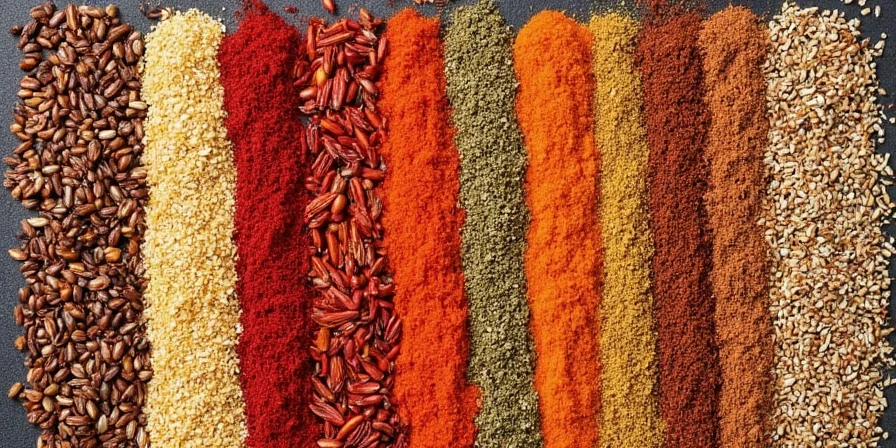
- Beginner Tip: Use 1 bay leaf per quart of soup or stew
- When to Add: At the beginning of cooking for soups and stews
- Pro Tip: Always remove bay leaves before serving—they don't soften
7. Saffron – The Premium Flavor Elevator
Saffron adds unique floral notes and golden color to Mediterranean dishes like paella and risotto.
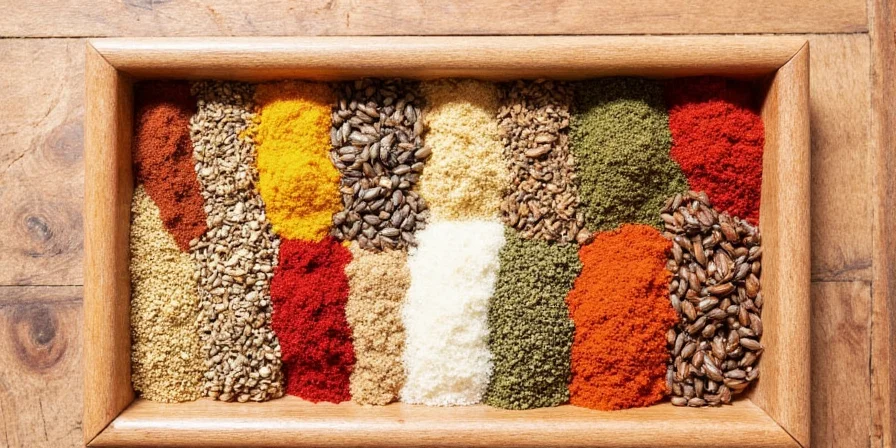
- Beginner Tip: Use 8 threads per 4 servings for proper flavor
- When to Add: Steep in warm liquid first, then add to dish
- Pro Tip: Store unused saffron in the freezer for longer shelf life
Quick Start Guide for Beginners
Just getting started with Mediterranean spices? Focus on these three essentials first:
- Oregano: For Greek salads, tomato sauces, and roasted vegetables
- Sumac: For salads, grilled chicken, and hummus
- Cumin: For bean dishes, stews, and roasted meats
Start with small amounts (1/4-1/2 teaspoon per serving) and adjust to your taste. These three spices cover 80% of Mediterranean dishes and work well together.
Proven Cooking Tips for Perfect Results
| Spice | Basic Application | Proven Success Tip |
|---|---|---|
| Oregano | 1 tsp per pound of meat | Add in last 10 minutes of cooking |
| Sumac | 1/2 tsp per salad serving | Use as finishing spice—never cook |
| Cumin | 1/2 tsp per serving in stews | Dry toast seeds before grinding |
| Paprika | 1/4 tsp per cup of sauce | Add during final simmering stage |
| Coriander | 1/2 tsp per fish serving | Grind seeds just before using |
| Bay Leaf | 1 leaf per quart of liquid | Add at beginning for soups |
| Saffron | 8 threads per 4 servings | Steep in warm liquid first |
Perfect Spice Pairings for Authentic Taste
These simple combinations create authentic Mediterranean flavors:
- Oregano + Garlic + Olive Oil: The classic Greek flavor trio for meats and vegetables
- Cumin + Coriander: The perfect earthy-citrus balance for bean dishes
- Sumac + Lemon: Brightens salads without wilting greens
- Paprika + Bay Leaf: Creates depth in tomato-based sauces
- Saffron + Fennel Seeds: Elevates seafood dishes with floral notes
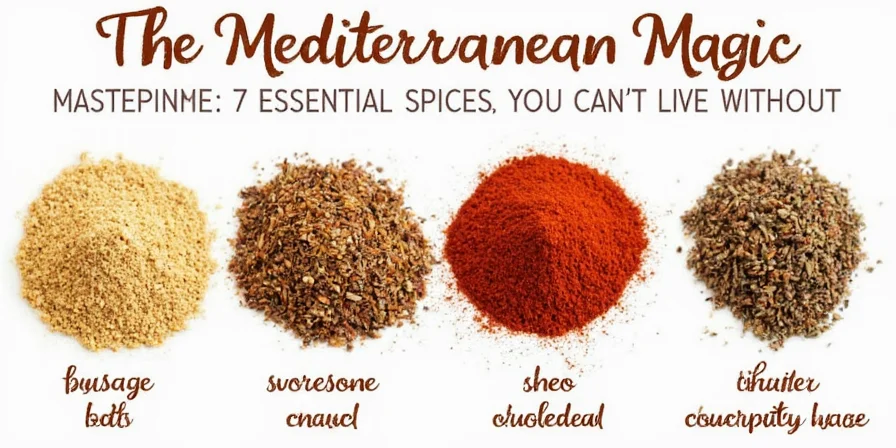
Simple Storage Methods to Keep Spices Fresh
Follow these easy steps to make your spices last longer:
- Light: Store spices in dark glass containers or a closed cabinet
- Heat: Keep away from stove—cool, dark places are best
- Air: Use airtight containers to prevent flavor loss
- Time: Whole spices last 3-4 years; ground spices 1-2 years
- Test: Rub between fingers—fresh spices release strong aroma
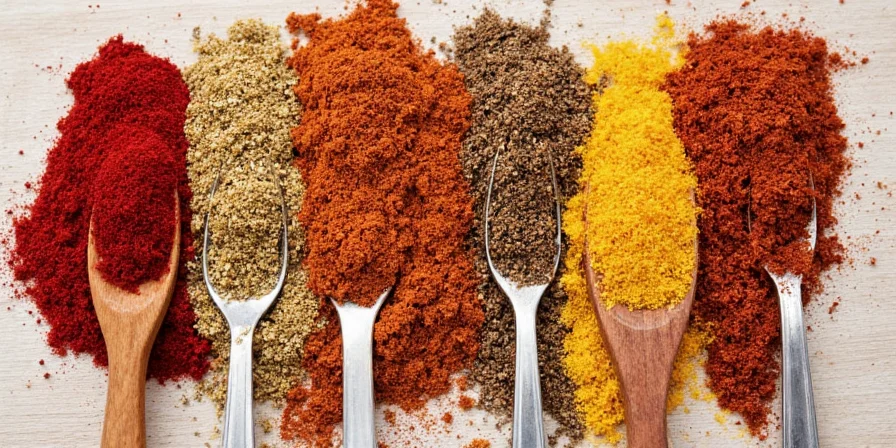
Conclusion
These seven Mediterranean spices give you everything you need to create authentic-tasting dishes at home. Start with the quick reference guide, master one spice at a time, and soon you'll be making restaurant-quality meals with confidence. Remember the three essentials—oregano, sumac, and cumin—cover most Mediterranean dishes. Perfect your timing, follow the simple storage tips, and enjoy consistently delicious results that will impress your family and friends.
Frequently Asked Questions
Can I substitute dried oregano for fresh in cooking?
Yes, use 1/3 the amount of dried oregano since it's more concentrated. Dried oregano works better in cooked dishes as fresh loses flavor when heated.
Why does my paprika taste bitter sometimes?
Bitterness happens when paprika gets too hot. Always add it during the last few minutes of cooking. For roasted dishes, mix with oil first to protect it from direct heat.
How can I tell if saffron is fresh?
Fresh saffron releases golden color in warm liquid within 5 minutes. Rub threads between fingers—fresh saffron has strong hay-like aroma; stale has little scent.
Do bay leaves actually do anything in cooking?
Yes, they subtly enhance other flavors. Use 1 leaf per quart of liquid. Always remove before serving as they don't soften during cooking.
Why can't I find consistent sumac flavor?
Look for deep burgundy color—brown indicates old sumac. Lebanese sumac has the best balanced flavor. Properly stored, sumac keeps its tanginess for 18 months.










 浙公网安备
33010002000092号
浙公网安备
33010002000092号 浙B2-20120091-4
浙B2-20120091-4